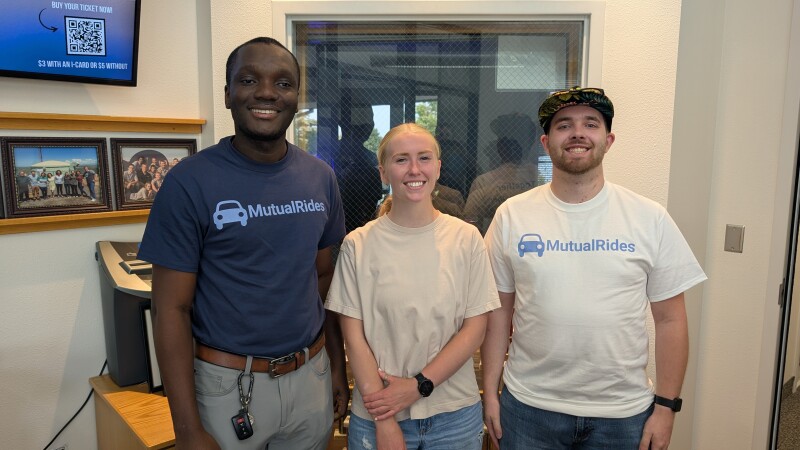Tired of begging for rides or braving the Rexburg wind on foot, two BYU-Idaho students decided to take matters into their own hands.
Mutualrides is a student-built ride-share program designed to make it easier and more affordable for students to get around without relying on Facebook ride boards.
Jones Asiegbu and Tanner Williams, the creators of the platform, said their goal is to keep the service accessible, affordable and safe.
“We've made it specifically for students because for you to sign up, you need your BYU-Idaho email. That way we keep that community tight and make sure that you're not just riding with strangers, you're riding with your peers that you attend the same school,” Asiegbu said.
The program operates on a subscription model, with options for a monthly, semester or yearly plan. With access to the platform, students can either request or offer rides. When providing rides, drivers set their own prices and accept payments through Venmo, Zelle or cash.
To help protect users, the service includes an in-app chat feature, allowing students to communicate without sharing personal phone numbers. It also includes an emergency button that can call 911, contact a trusted person or file a complaint directly with MutualRides.
“Right now, there's a lot of ride boards out there and people just join, asking for rides and it's not that efficient because you don't know who is in the ride board,” Asiegbu said. “Do I know this person? Can I trust this person?”
Mutualrides is currently available through its website and will soon launch as an app on both the Google Play store and Apple’s iOS App Store.
Students can begin with a free 90-day trial before choosing a subscription: $3.99 per month, $9.99 per semester or $24.99 per year.
“We wanted to give students this opportunity to kind of foster a community of let's help each other. I need a ride. You have a car. You need gas money. So, it's just really kind of a good foundation of just a good, helpful community,” Williams said.
To learn more about Mutualrides, listen to the full interview on BYU-Idaho Radio’s podcast on Spotify, YouTube or wherever you get your podcasts.
